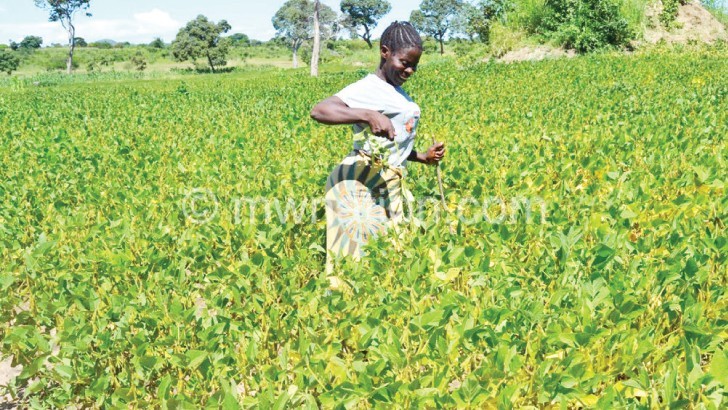Ministry keen to enhance farm produce formal trade
The Ministry of Industry, Trade and Tourism is developing Export Mandates Regulation to formalise trade for selected agricultural commodities under the Control of Goods Regulations.
Principal Secretary in the ministry Ken Ndala said in a statement that under the initiative, government is providing a framework that enhances inclusiveness of farmers and other commodity producers and traders into sustainable and formal market structures.

He said government recognises Commodity Exchanges as formal and organised market platforms for the trading of commodities for local processing and consumption as well as export.
Ndala said government is proposing to introduce Export Mandates for selected agricultural commodities, particularly oil seeds such as soy beans, groundnuts, and sunflower; pulses such as pigeon peas, cowpeas, beans in all categories; and rice and rice bran.
He said: “The benefits from this initiative include better prices for farmers, access to financial services, better integration of the private sector in the agricultural value chain, greater inflows of foreign exchange and greater public revenues.
“The proposition of introducing Export Mandates on the strategic commodities contributes towards solving the problems of maintaining commodity prices attractive enough to encourage farmers to continue producing the commodities and facilitating repatriation of foreign exchange earnings from export proceeds and reduce the scarcity of commodities for the industry.”
Civil Society Agriculture Network (CisaNet) executive director Pamela Kuwali described the current discussion on structured markets as vital in spurring agricultural productivity for farmers.
She said implementation has been slow despite the government, through the Ministry of Trade, Industry and Tourism, championing the process.
Currently, Malawi has two privately-owned structured markets, namely Agricultural Commodity Exchange for Africa (ACE) which was established in 2006 and the AHL Group-owned by AHCX which was established in 2013.





